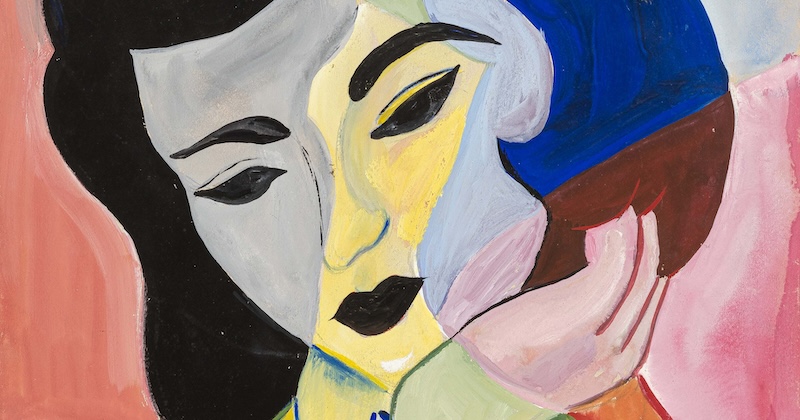
Take a peek at a new collection of rare Sylvia Plath ephemera.
Plath obsessives, take heed: rare book firm Type Punch Matrix is bringing over two dozen items from the poet’s early life and work—many of them never before shown in public—to this year’s New York International Antiquarian Book Fair.
The collection includes a portrait Plath painted at the tender age of 16, an entire poem written in her hand, her first professional writing contract (for Seventeen magazine, dated from when Plath herself was 17), as well as books from her library, including a “heavily annotated and underlined” copy of Karl Jaspers’s Tragedy is Not Enough, which includes two notable annotations—the first referencing her 1953 suicide attempt, the second marking Jasper’s discussion of Prospero and Ariel. “This section was underlined by Plath 10 years before her collection Ariel appeared,” explains TPM co-founder Brian Cassidy in a press release. “In many ways, you can see the beginnings of her two most famous books right here.”
“Most of this material was acquired by the previous owner directly from Sylvia’s mother Aurelia, who was a personal friend of the buyer,” according to Type Punch Matrix founder Rebecca Romney. “Plath’s mother received little money from Plath’s increasingly lucrative estate which was controlled by her husband, the poet Ted Hughes, so she occasionally sold Plath’s personal items to supplement her income.”
If you happen to be in the area, you can see the full exhibit at Type Punch Matrix’s booth (A35) at the New York International Antiquarian Book Fair, which will be held April 4-7 at the Park Avenue Armory. In the meantime, take a peek at a few of the items from the exhibit below:
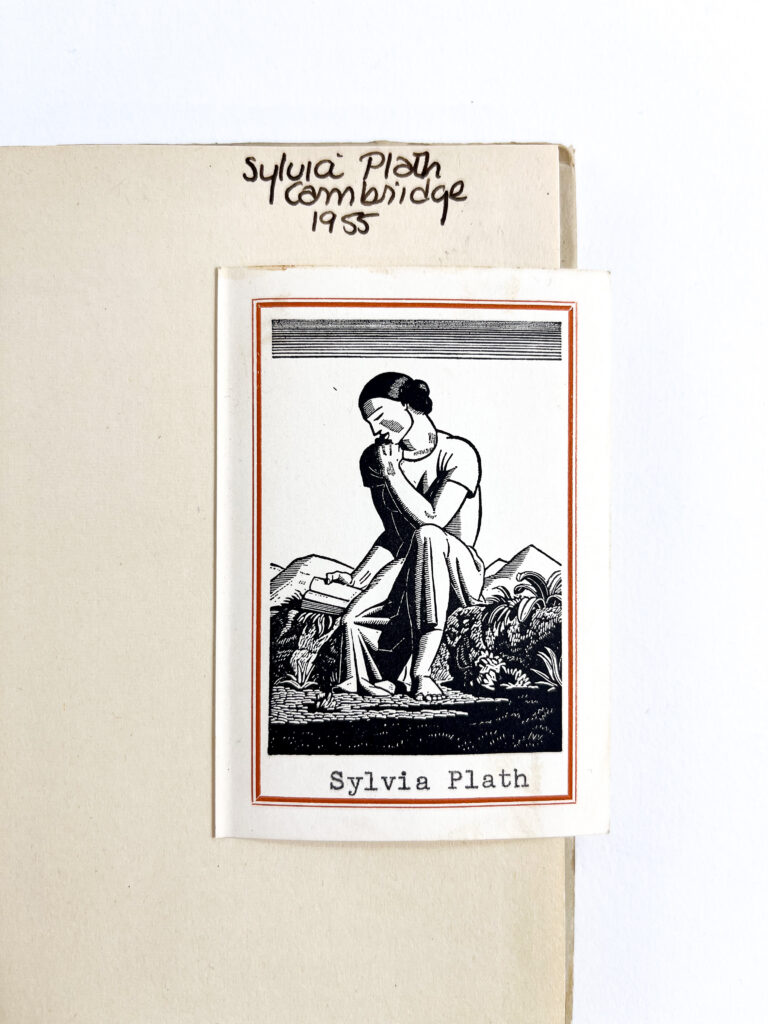 From Sylvia Plath’s annotated copy of a book on tragedy she used at Cambridge, Tragedy is Not Enough by Karl Jaspers (1953)—with marginal notes connecting the text to her own 1953 breakdown immortalized in The Bell Jar and a prophetic description of Ariel as a poet. $35,000. CREDIT: Type Punch Matrix
From Sylvia Plath’s annotated copy of a book on tragedy she used at Cambridge, Tragedy is Not Enough by Karl Jaspers (1953)—with marginal notes connecting the text to her own 1953 breakdown immortalized in The Bell Jar and a prophetic description of Ariel as a poet. $35,000. CREDIT: Type Punch Matrix
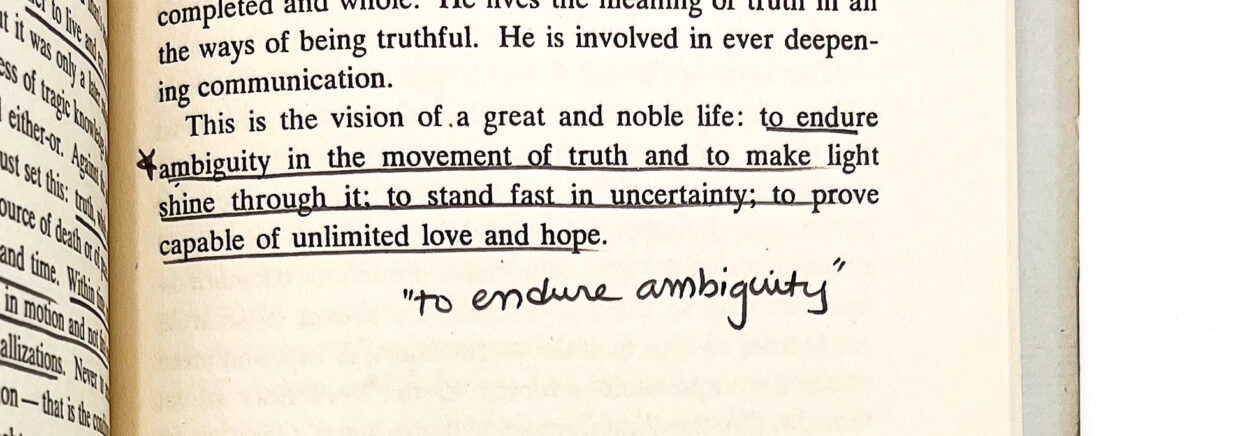 From Sylvia Plath’s annotated copy of a book on tragedy she used at Cambridge, Tragedy is Not Enough by Karl Jaspers (1953)—with marginal notes connecting the text to her own 1953 breakdown immortalized in The Bell Jar and a prophetic description of Ariel as a poet. $35,000. CREDIT: Type Punch Matrix
From Sylvia Plath’s annotated copy of a book on tragedy she used at Cambridge, Tragedy is Not Enough by Karl Jaspers (1953)—with marginal notes connecting the text to her own 1953 breakdown immortalized in The Bell Jar and a prophetic description of Ariel as a poet. $35,000. CREDIT: Type Punch Matrix
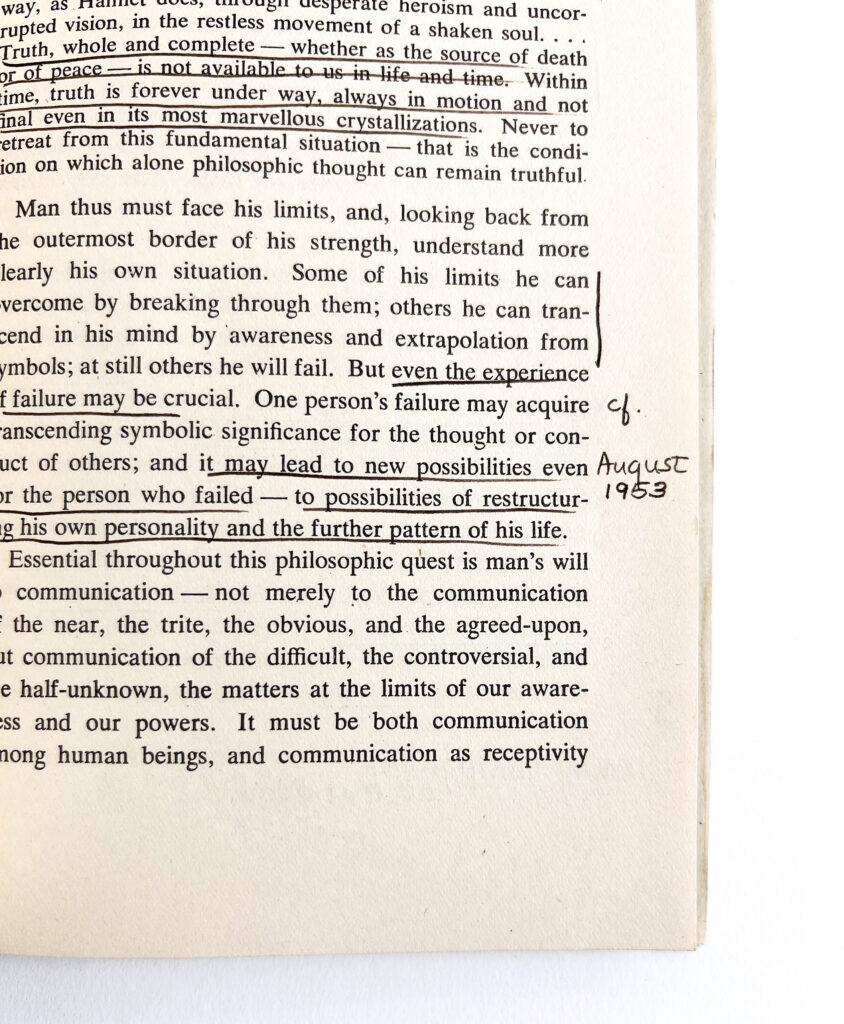 From Sylvia Plath’s annotated copy of a book on tragedy she used at Cambridge, Tragedy is Not Enough by Karl Jaspers (1953)—with marginal notes connecting the text to her own 1953 breakdown immortalized in The Bell Jar and a prophetic description of Ariel as a poet. $35,000. CREDIT: Type Punch Matrix
From Sylvia Plath’s annotated copy of a book on tragedy she used at Cambridge, Tragedy is Not Enough by Karl Jaspers (1953)—with marginal notes connecting the text to her own 1953 breakdown immortalized in The Bell Jar and a prophetic description of Ariel as a poet. $35,000. CREDIT: Type Punch Matrix
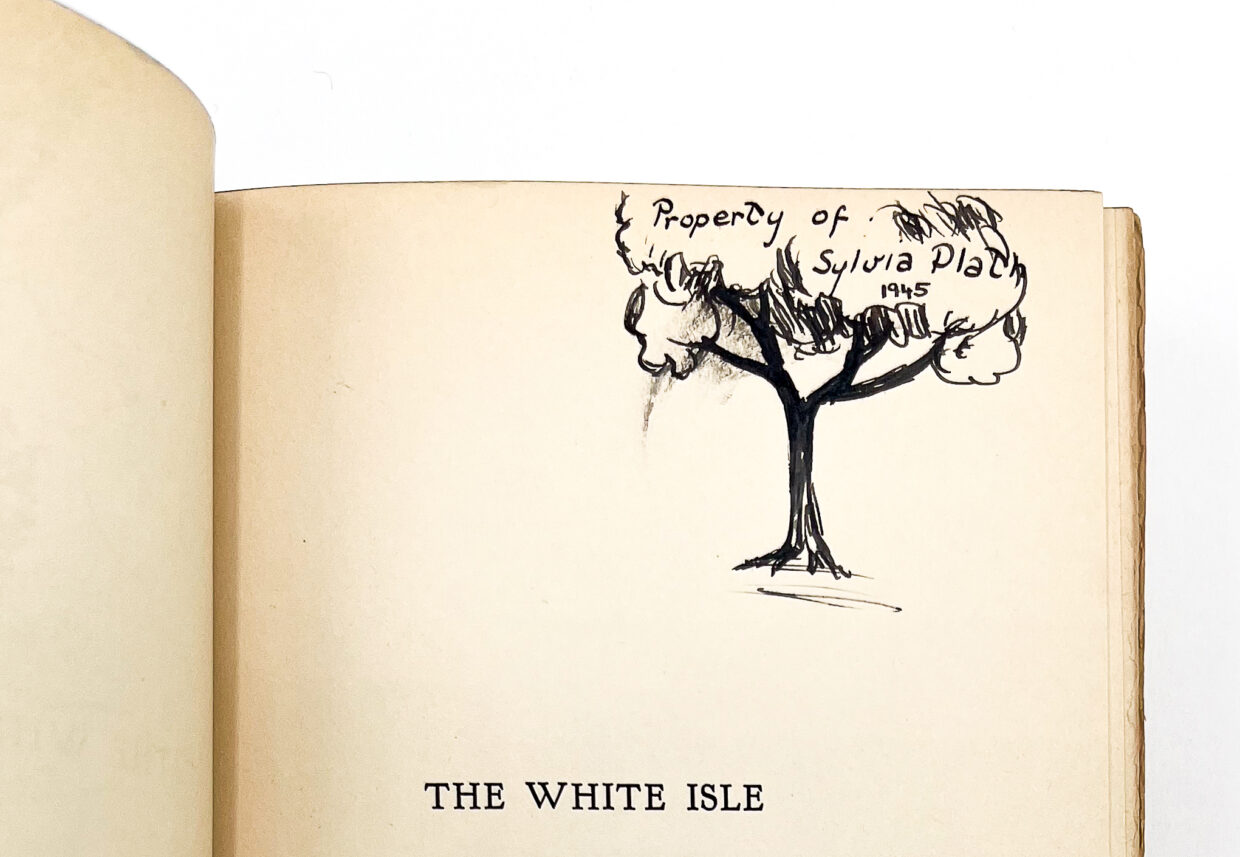 Another book from Plath’s library, The White Isle (1940) by Caroline Dale Snedeker—signed twice by Plath, with an original drawing by her and her bookplate laid in. Read by Plath as a tween, it is the almost-too-apt YA novel of a young Roman girl exiled to the soggy shores of Britain and burdened with a literal-minded mother named Aurelia. $20,000. CREDIT: Type Punch Matrix
Another book from Plath’s library, The White Isle (1940) by Caroline Dale Snedeker—signed twice by Plath, with an original drawing by her and her bookplate laid in. Read by Plath as a tween, it is the almost-too-apt YA novel of a young Roman girl exiled to the soggy shores of Britain and burdened with a literal-minded mother named Aurelia. $20,000. CREDIT: Type Punch Matrix
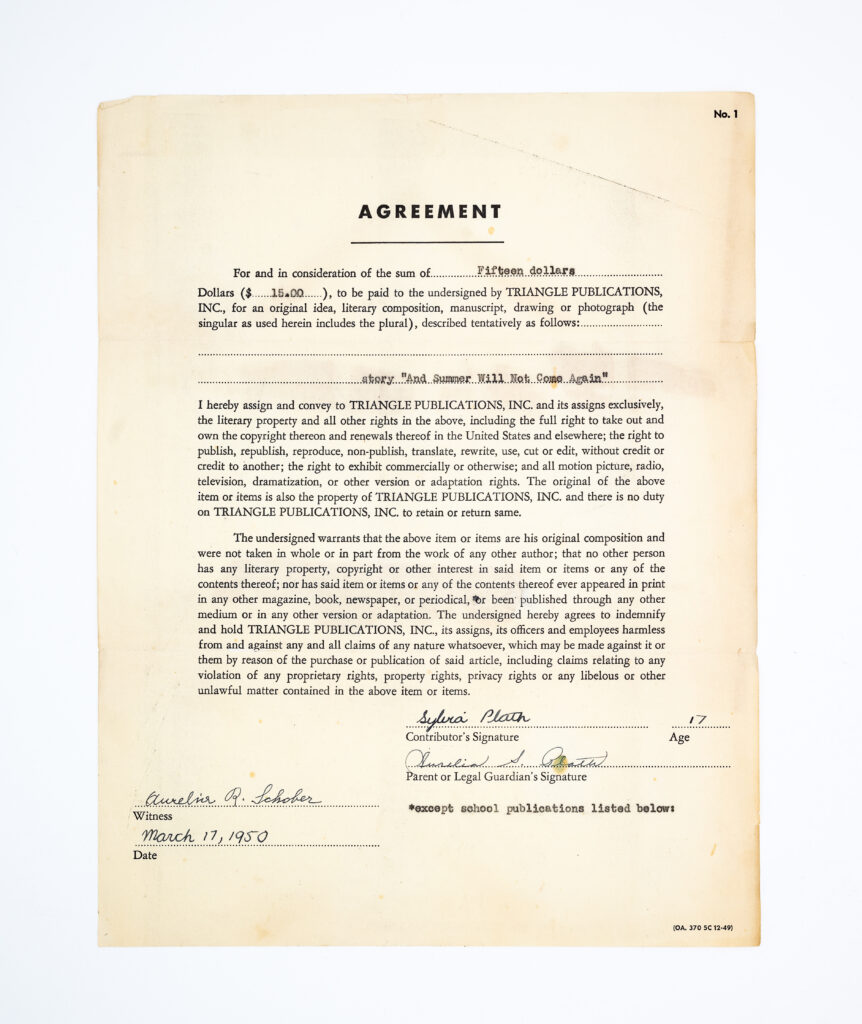 An original signed contract for Plath’s first professional publication, Seventeen’s purchase of her short story “And Summer Will Not Come Again”—published when Plath was herself seventeen. $10,000. CREDIT: Type Punch Matrix
An original signed contract for Plath’s first professional publication, Seventeen’s purchase of her short story “And Summer Will Not Come Again”—published when Plath was herself seventeen. $10,000. CREDIT: Type Punch Matrix
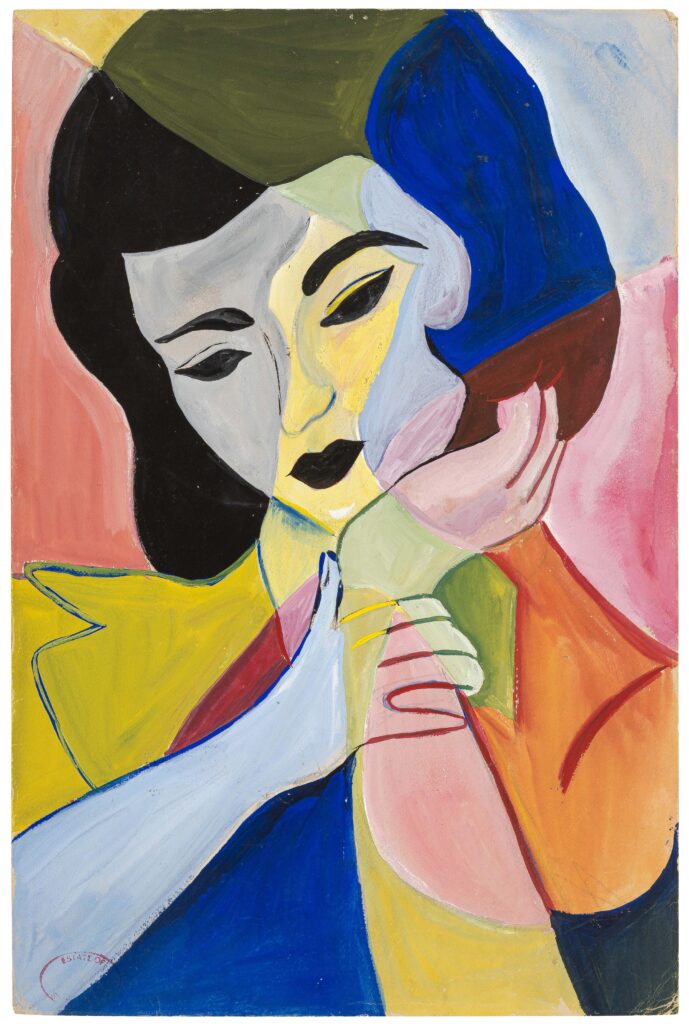 A stunning original painting of a young woman created and signed by Plath at age sixteen. Before she settled firmly on poetry in college, she seriously considered majoring in art. $135,000. CREDIT: Type Punch Matrix
A stunning original painting of a young woman created and signed by Plath at age sixteen. Before she settled firmly on poetry in college, she seriously considered majoring in art. $135,000. CREDIT: Type Punch Matrix
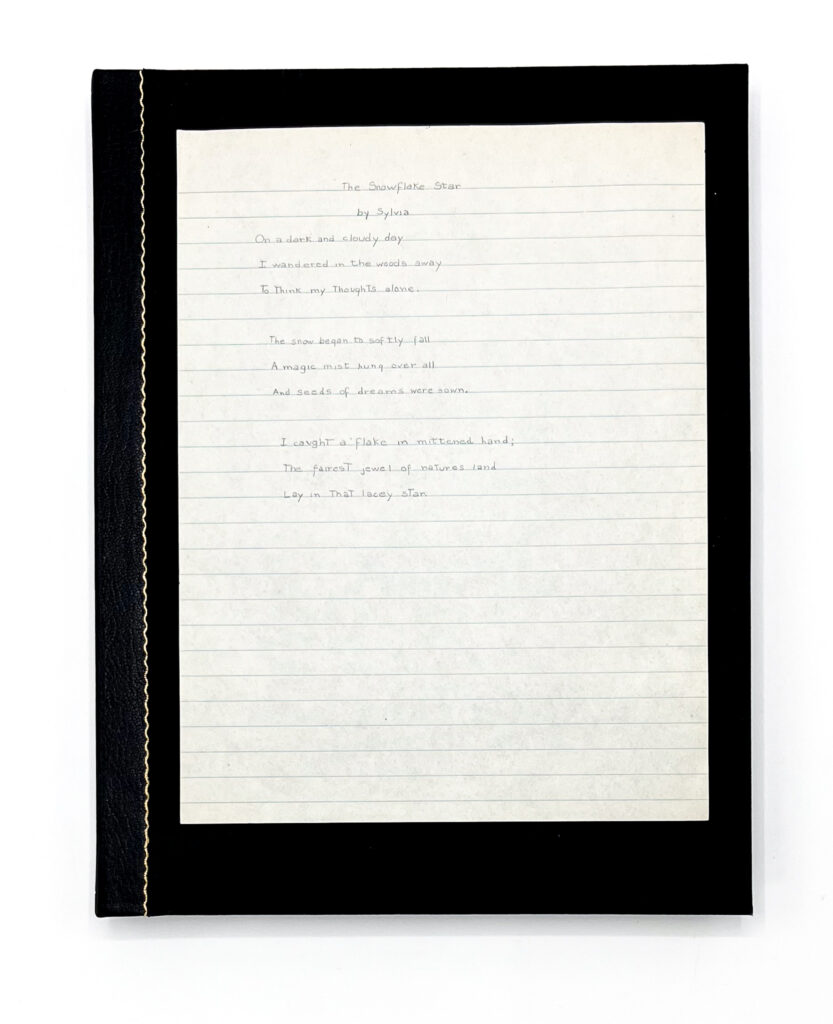 An original autograph manuscript of one of Plath’s earliest poems, “The Snowflake Star,” completed in early 1945, just before she turned fourteen. $45,000. CREDIT: Type Punch Matrix
An original autograph manuscript of one of Plath’s earliest poems, “The Snowflake Star,” completed in early 1945, just before she turned fourteen. $45,000. CREDIT: Type Punch Matrix
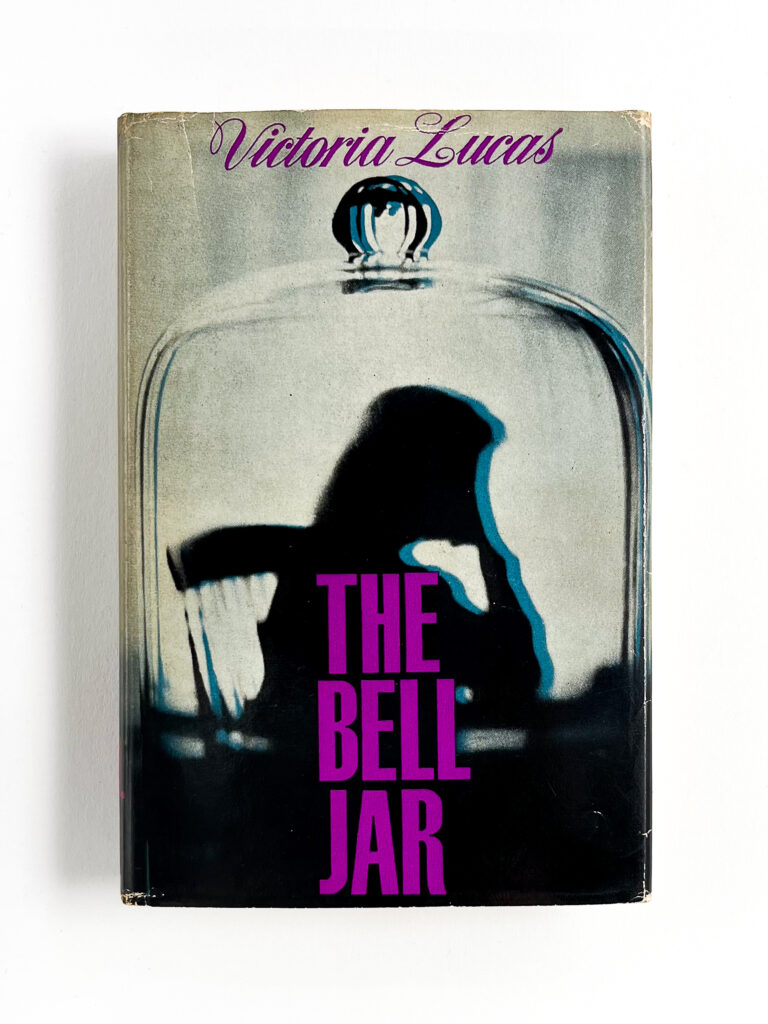 The true first edition of The Bell Jar (1963), published in the UK under the pseudonym Victoria Lucas. $26,000. CREDIT: Type Punch Matrix
The true first edition of The Bell Jar (1963), published in the UK under the pseudonym Victoria Lucas. $26,000. CREDIT: Type Punch Matrix
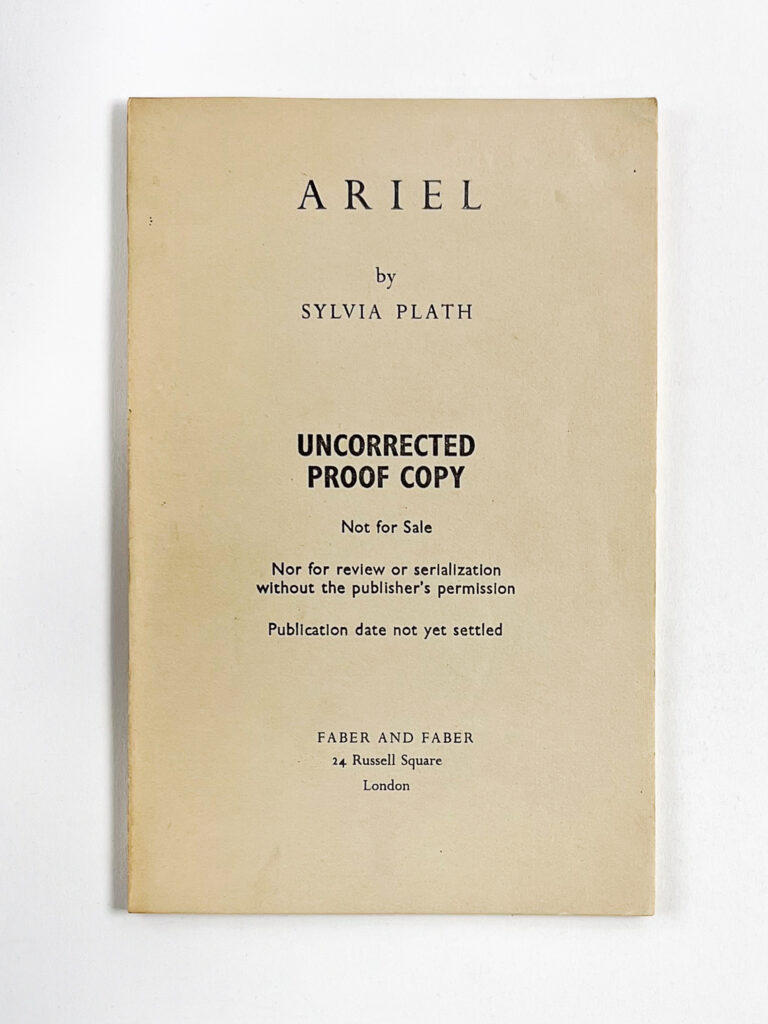 A suite of copies of Ariel (1965): proofs of the first edition, $6000 (pictures); the first edition, $1000; review copy of the first US edition, $750. CREDIT: Type Punch Matrix
A suite of copies of Ariel (1965): proofs of the first edition, $6000 (pictures); the first edition, $1000; review copy of the first US edition, $750. CREDIT: Type Punch Matrix
Emily Temple
Emily Temple is the managing editor at Lit Hub. Her first novel, The Lightness, was published by William Morrow/HarperCollins in June 2020. You can buy it here.



















